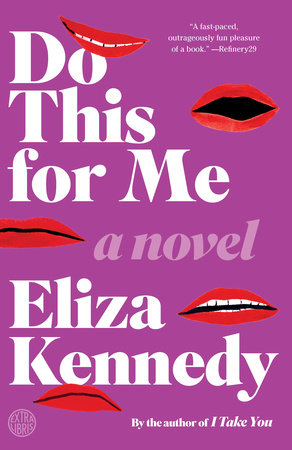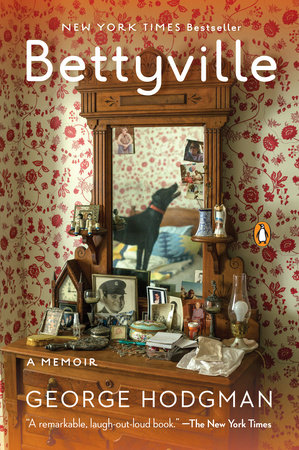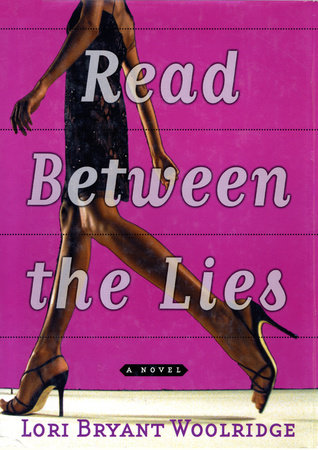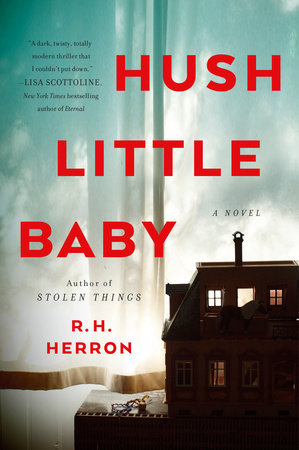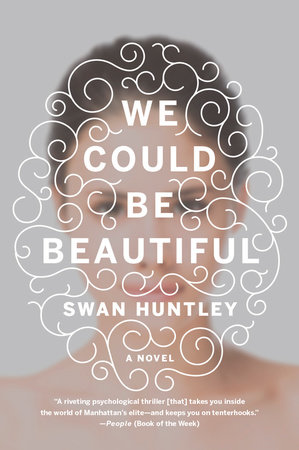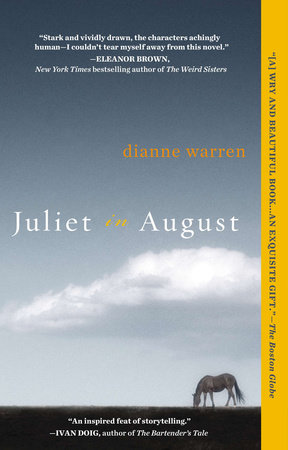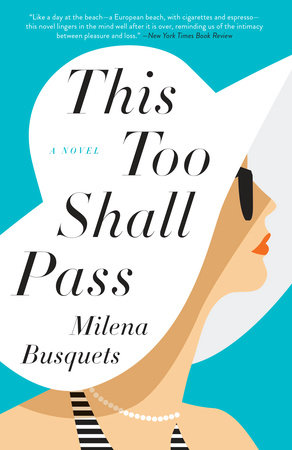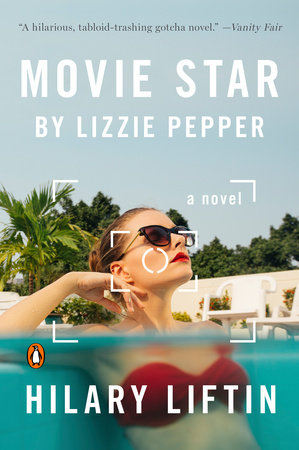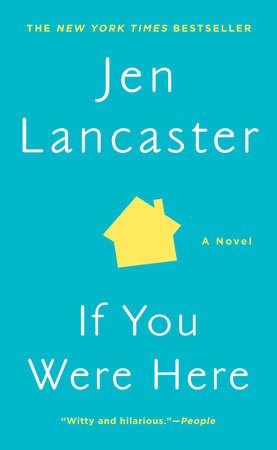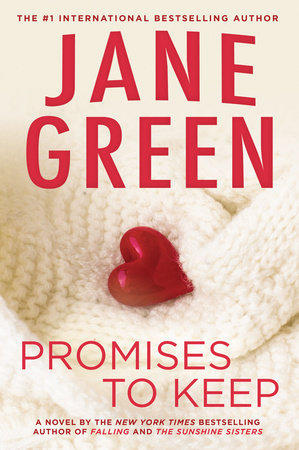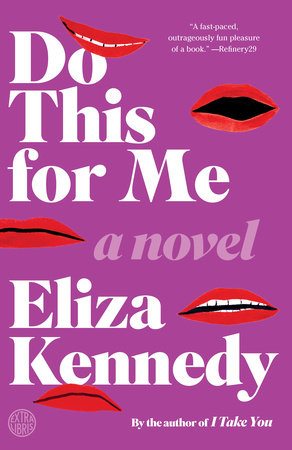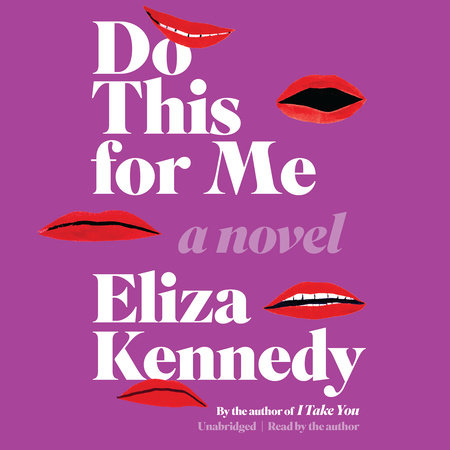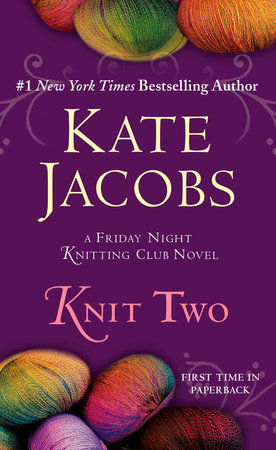Author Q&A
A conversation with Eliza Kennedy, author of
DO THIS FOR ME: A Novel
(Crown, May 15, 2018)
Q) In DO THIS FOR ME, your main character, Raney Moore, is an ambitious attorney at a hallowed New York law firm, a wife to a famous writer, and a loving mother of twin girls. Her world is perfect . . . until she finds out her husband cheated on her while on a book tour. What was Raney like before she found out about the affair?
A) Raney is a woman who’s convinced she’s got it all figured out. Career, marriage, family, friends—she’s won at life and happily takes the credit. There’s a lot more going on under the surface, of course: insecurity, fear, memories of a difficult childhood, the suppression of uncomfortable emotions and desires. Raney locks all that away, choosing instead to focus on her success. Then a big part of that success vanishes with a phone call.
Q) In your first novel, I Take You, your heroine, Lily Wilder, has no qualms about sleeping with other men, even though she is engaged to a man she cares deeply about. In many ways, Raney is the opposite of Lily. Though she’s also funny and bold and (seemingly) fearless, her life is about prohibitions: no drinking, no swearing, and not a lot of interest in sex. What inspired this new novel, and what were the challenges in creating Raney?
A) This book nearly killed me. I wanted to write another novel about infidelity—specifically, to show how a marriage could survive an affair. I was approaching it like a lawyer, intent on presenting an argument. And that was deadly. I’d created this complex, vibrant character in Raney, but instead of following her, I was forcing her to stick to my agenda. It wasn’t ringing true. We fought constantly. We probably could have used couples therapy. Eventually, I realized that a novel isn’t a legal brief—you can’t intend to persuade. So I let go, and the book became what it should have been all along: the story of a woman who has been putting up protective barriers all her life, a woman profoundly (and often comically) alienated from herself, and what happens when she embarks on a quest to figure her shit out.
Q) As a former lawyer, you draw a picture of firm life that isn’t always flattering. In addition to the long work hours, one theme that unfolds is the workplace culture and how women are treated. In light of the Harvey Weinstein revelations, many women stepped out to confirm they have been harassed or assaulted in the workplace, igniting #MeToo on social media. Why did you feel it was important to touch on that theme?
A) I started the novel over two years ago, well before we started having this (long, long) overdue conversation about men and women in the workplace. Nevertheless, I knew I had to give Raney an experience of workplace sexism, since, sadly, no woman could have attained her level of success without having to deal with it. Still, I didn’t want to be didactic or simplistic about it. That’s why, at first, Raney is pretty unenlightened. Sticks and stones won’t break my bones, et cetera. Only gradually does she realize that her self-protective strategy is harmful to other women, and probably to herself. I liked the idea of a woman having to be educated about sexism as part of her discovery of all the other things she’s ignored in order to succeed.
More recently, I’ve been reflecting on how sexism might manifest itself differently in other fields. The law is a contentious place, full of people who argue for a living. More than once, I
experienced harassment as a litigation strategy: an opponent would say or do something awful not only because he believed that as a woman I was a lesser being, but also because he wanted to rattle me and he thought boorish behavior might do the trick. (Surprised I’m not still a lawyer?) Sexism is, at its base, a power relation, and the power structures in place in the legal world are different than those in, say, entertainment. But they’re there, and for all our progress they still work against women. I’ll be interested to see whether the legal world experiences the kind of onslaught of allegations that creative fields are now confronting.
Q) The novel begins with Raney’s discovery of Aaron’s betrayal. She reacts by methodically and hilariously taking his life apart—all while approving briefings and taking client calls (some of the best scenes in the novel!). What drives Raney, a very organized and careful person, to this outlandish and impulsive behavior?
A) Rage. She is purely, utterly enraged. She thought she had it all, she thought she knew everything, and upon being presented with solid evidence that, ha-ha, sorry, he was playing you for a fool, she lashes out, using all the tools at her disposal.
Q) There are so many laugh-out-loud moments during Raney’s takedown of Aaron—from canceling his credit cards and hacking his Twitter feed to putting their house on the market and moving their belongings out—all while he’s en route back from his book tour to try and explain himself. Did you draw from any . . . ahem . . . personal revenge experiences? What were some of your favorite scenes to pen?
A) I’ve never been angry enough with anyone to commit identity theft—though who knows what the future may bring? But in terms of the overall feel of those scenes, I was definitely drawing on my memories of work emergencies. When something big and urgent happened at the law firm where I worked, there would be this sudden maelstrom of activity: paralegals and associates rushing around, phones ringing, paper flying—and at the center of it all, a partner, directing the troops, delegating tasks, and otherwise curating the madness. Even though Raney is attempting to destroy her husband rather than an opposing litigant, I thought she would do so in lawyer mode, and I had a lot of fun interspersing her diabolical attacks with the ordinary events of the workday—signing expense reports, talking to clients, and so forth. My favorite part to write was the Twitter stuff. That’s some supervillain-level revenge.
Q) Raney has managed to create a name for herself among the men in her firm in large part by ignoring a lot of bad behavior. Her game plan has always been to work hard, prove to them you’re the best, and ignore the rest. But as the novel unfolds, we see that Raney is complicit in several ways, including some naughty behavior of her own. Tell us about that!
A) After her rage subsides, Raney takes a very Raney-ish approach to Aaron’s infidelity: she sees it as a problem to solve. So she embarks on a quest to gather information, find answers, and return to the status quo. But the more she learns—about infidelity, about desire, about herself—the farther she seems to be getting from any concrete result. There comes a point at which the floodgates open, and without giving too much away, let’s just say Raney learns a lot about desire. And while that should be the tidy conclusion to her story, it actually makes things more complicated. I didn’t want this to be a story about good women and bad men—I wanted it to be messy, and human, and to demonstrate that we’re all susceptible to making mistakes. Which is very much what Raney does.
Q) The peripheral characters in this novel are equally charming and entertaining—Raney’s loyal assistant Renfield; her best friend Sarah; Marty, her mentor and champion at the firm; her newest associate Amanda; and the enthusiastic and very resourceful paralegal, Cameron. Tell us a bit about each of them.
A) Renfield is an old-school legal secretary, a New Yawk kind of broad. She uses shorthand, hates her computer, and is supremely unimpressed with great legal minds all around her. Sarah is recently divorced, worldly-wise, and a loving confederate always willing to tell Raney when she’s being an idiot. Amanda is a young lawyer who forces Raney to rethink her beliefs about sexism at the firm and in the wider legal world. There are others, but my favorite supporting characters are Wally and Jonathan, two of Raney’s law partners and friends, who wander in and out of her office providing comical (and often wildly incorrect) advice about men, infidelity, and dating.
Q) While DO THIS FOR ME is incredibly entertaining, it is more than just a fun beach read (though it’s definitely that!). Raney’s experiences touch on larger issues, such as fidelity, a topic many people believe is black and white, but it is actually incredibly complicated. What’s your take on monogamy?
A) Swans seem good at it?
Q) DO THIS FOR ME goes in directions that many readers might not expect. Raney spends a good deal of time trying to understand her marriage and her sex life. Along the way, she discovers parts of herself she never knew about, as well as another love interest, Mickey Singer. Did the novel end the way you originally anticipated?
A) Not at all. Even after I tore up my misguided agenda, I was unsure where to leave things. As a result, there have been three entirely different endings to the book. The first was abandoned somewhere around the copyedited stage. I came up with the second shortly thereafter, only to realize it wasn’t right after the galleys had been created. The third (and best!) ending will be printed in the final book itself. Unless I change my mind again. (Kidding! Only kidding, lovely and patient editors!)
Q) I Take You is currently being developed into a film, and you’re writing the screenplay! Is there any news you’re able to share? Have they cast any of the leads yet? Have you thought at all about who would play Raney if film rights for DO THIS FOR ME are also picked up?
A) I did write the screenplay and had a great time translating Lily’s voice from the page to the visual world of the screen. I believe the producers are on the hunt for a director right now. I’d love for the same thing to happen with the next book, although I have intentionally avoided thinking about the perfect Raney. I’m too superstitious.
Q) In addition to your new novel, you’re also doing some TV writing. You were recently tapped to adapt Mary Roach’s book Bonk, a bestselling science book all about sex, for TV. How has that project been to work on?
A) So much fun. I love writing novels, but I miss working with other people—screenwriting is far less lonely, and I feel very lucky to be able to do both. Bonk is such a witty and thought-provoking book, and I’ve had a fantastic time devising a fictional story around its stranger-than-fictional facts. Though I’ll never be able to capture Mary’s voice. She’s just too good.
Q) What are you working on next?
A) I have an idea for another novel, but I’m going to hold off for a few months—this one was a torment, and I want to make sure my pesky agendas don’t get in the way again. In the meantime, I’m working on an original screenplay and Bonk-ing away (sorry—the jokes are too easy).
